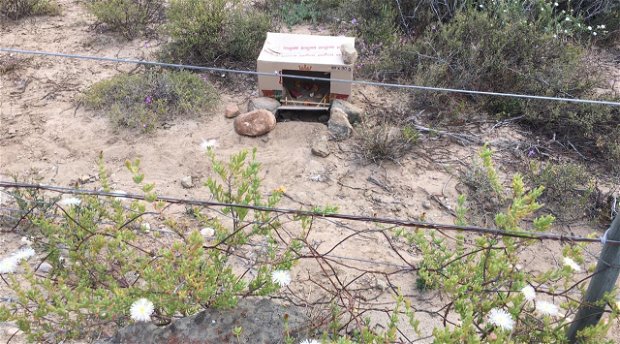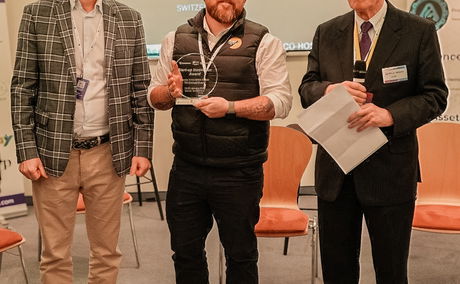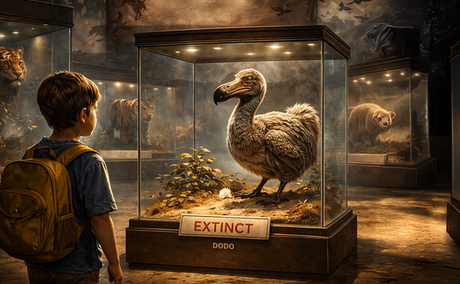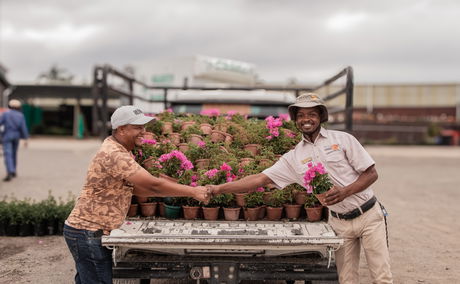For a conservation organisation based in Oudtshoorn, moments like this do not come often. And when they do, they are worth pausing for. This year, a South African conservation technology project founded by our CEO, Douglas Eriksen, was recognised on the global stage at the World Economic Forum in Davos. Project ZOA, or Zoological Open Architecture, was awarded the Startup Innovation Award for Top AI Sustainability Project during Davos Innovation Week 2026.
Poaching can happen on your doorstep too

Poaching is a harsh and ugly reality threatening a multitude of species globally. In many cases, it is single-handedly responsible for the endangerment and extinction of a species. Daily, we broach this subject on our educational guided tours to educate visitors on the plights of the species we house and the impact of bushmeat crisis. Never, not once, did we ever think that we would experience it on our own property.
As per the images, these boxes, ie. tortoise traps, were discovered by our staff on our Private Reserve last week. Suspicions were roused after our staff saw a person fleeing the area, in the distance, during a routine trip to the reserve. Our staff were unable to find the culprit, but thankfully, they found the traps that had been placed. Immediately, local authorities were notified, and the boxes were removed.
The illegal capturing of wild animals is motivated by several reasons but there are two main factors, for food and for trade. Eating bushmeat can be attributed to cultural habits and preferences, and quite simply for survival. Trade though, is motivated by the demand of ‘valuable’ animal parts and products, by locals for socioeconomic benefits, and that of large international organized crime syndicates. This is fuelled by unproven religious, aphrodisiac, and medicinal uses, exotic food dishes, trophy hunts, and the illegal pet trade. But poaching does not only affect fauna, but flora too. Cape Nature is currently facing challenges in the Western Cape with succulent plant poaching. Believe it or not, the plant trade has changed into an operation much like that of rhino poaching, where the main role-players sit offshore, and the poaching is done by locals. Poachers are going into specific species localities and harvesting thousands of endemic plants that have limited distribution, thereby decimating natural populations. The fact that the plants are found nowhere else in the world makes them highly sought after and attractive to international collectors, leaving devastating effects on our biomes.
To say that we were furious and disheartened to find the traps is an understatement, but the silver lining is that now we can share this with thousands of wildlife advocates, to raise further awareness.
These simple but effective traps can be produced with very little and can be placed under bushes drawing minimal attention. It is also the perfect time of year, as all these little creatures become more active with the change of season. A video, demonstrating how the trap works, can be viewed in the comments section of this link: https://www.facebook.com/633406110021557/posts/4895353487160110/
Should you encounter anything of the sort whilst out and about, or should you ever witness suspicious activity pertaining to the natural environment, please report it to your nearest Cape Nature office or local authority.
Cape Nature Oudtshoorn: 044 203 6322
CONSERVE. CARE. CONNECT.
Further Reading
The Dodo once walked freely on the island of Mauritius. With no natural predators, it had no reason to fear humans. Within less than a century of human arrival, it was gone. Extinction is permanent. Once a species disappears, there is no recovery, no second chance, no future generations to protect. Every species on the Red List tells a story of pressure. Habitat loss. Human conflict. Climate stress. Decline that did not...
Some partnerships are built quietly and strengthened over time through consistency and shared purpose. Since 2018, Kraaibosch Nurseries in George has supported Cango Wildlife and the Cheetah Preservation Foundation as a benefactor. Their ongoing contributions help sustain the day to day work of conservation, from animal care and veterinary treatment to habitat management and long term programmes focused on threatened species, including cheetahs and other vulnerable wildlife in our care.















Share This Post